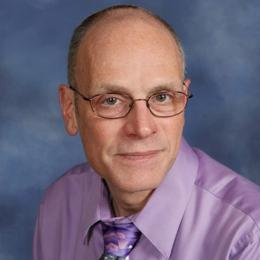The transition to retirement has been surprising. After years of working at 110% (on a slow week), I was looking forward to continuing some of the work I’d grown to love — only at a sane and relaxed pace. After years of not having nearly enough hours to come close to fulfilling all of the requests made of me, I was finally going to be able to give of my time and talents wherever I thought it might be most useful. This was going to be my reward! :taking all of the learning and experience and creativity of 2+ decades and offering it joyfully but without obligation.
This is not how it’s turned out. I had been eager to work or volunteer part time at the Children’s Hospital and/or one of the local Reform synagogues, and do what I love without the nagging sense of so many as-yet-uncompleted tasks stalking me in the background. So I was honestly taken aback by all of the no-thank-yous — even for a willing, eager, and skilled volunteer.
That rejection has separated me from the professional world in which I previously thrived. It’s now strange to think about being in dialogue with those who were for years my fellow professionals. If I’m not “doing,” am I still a credible colleague? This has been a troubling dilemma for me.
Being back in Seattle, I have reconnected with music professionals (the colleagues of my pre-clergy life) whose careers have blossomed beautifully. One friend, who I’d hired in his early professional days as a soloist, has gone on to be a wonderful conductor and composer with a solid, international reputation. He recently posted about a commission he had received — a choral composition that was going to serve as social commentary on the plight of the migrant children taken from their parents on our southern border. He created a text based on the rules for children in the detention centers as described in a newspaper article, which include no touching, no hugging, no comforting your distraught sibling. And he combined that text with the wise words of prominent figures ranging from Malala Yousafzai to Mahatma Gandhi regarding the obligations of a healthy, civilized society toward its children. It is a powerful statement, and will add to the many voices that have drawn attention to and advocated for these distressed children.
I am so impressed with this project, as I am with the incredible work of the many musicians whom I had taught or hired or with whom I had attended grad school. And I struggle to reconcile the fellow music professional I used to be with the person who now teaches swim lessons to preschoolers. I suppose it could be an ego thing, but it feels much more like simply curiosity about the value of the contributions I’m currently making in the world.
Pondering this, I thought back to the things that always gave me the most satisfaction: the look of joyful shock on the face of a student who just accomplished something they never thought they could be capable of; the quiet, shared moment holding the hand of a child or a parent in the ephemeral tranquility of a hospital room on a Saturday evening; the message from a former student whom I haven’t seen in years, reaching out at a difficult moment. This led me to realize that while advocacy or fundraising for causes surrounding children is essential, it is only one piece. Someone still has to sit face-to-face with the actual children.
As I’ve said before, that which is most precious — most sacred — is often what occurs in the quiet, unseen moments. The performance of a wonderful new choral work will draw attention to the needs of these children. It is profoundly important. But the direct and intentional presence of those supporting the children on a day-to-day basis, largely unseen by the outside world, is the truly sacred work. They are distinct, each important in their own right: Performance and presence. Advocacy and action.
So what about those swim lessons with the preschoolers? What does it mean for a 4-year-old, terrified to get in the water on Day One, to be able just a few weeks later to jump into the water, be submerged briefly, turn and grab onto the side of the pool, and climb out…laughing? A sense of achievement? Increased self-confidence? (Very proud parents, of course!) A new, potentially life-saving skill?!
The transition to retirement has been surprising. But like I always told my high schoolers, be surprised! — because the most wonderful, life-changing moments often occur when The Plan doesn’t work out and an unexpected, new reality ends up being far superior. I’m pretty sure this particular surprise is still a work in progress. In the meantime, the carrying on and chaos of a bunch of preschoolers in the water is pretty entertaining!




